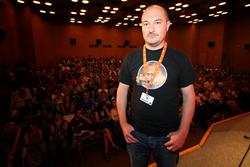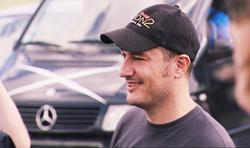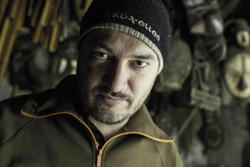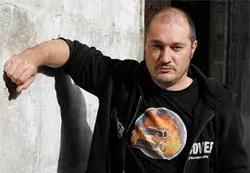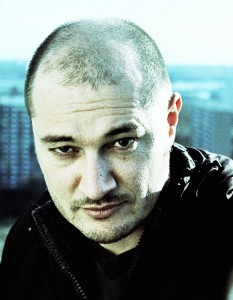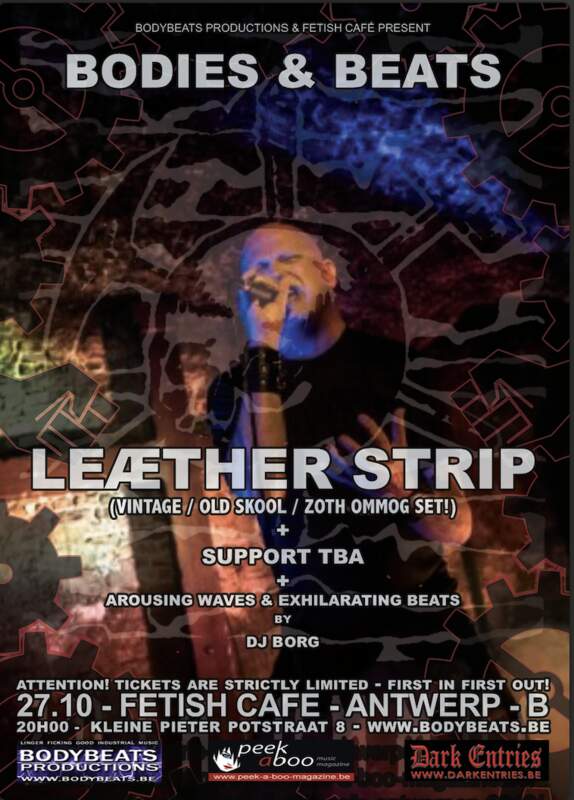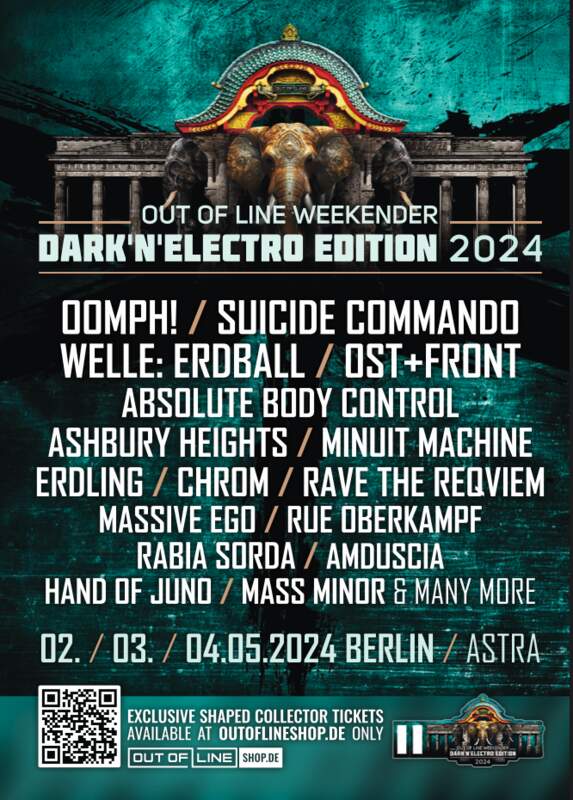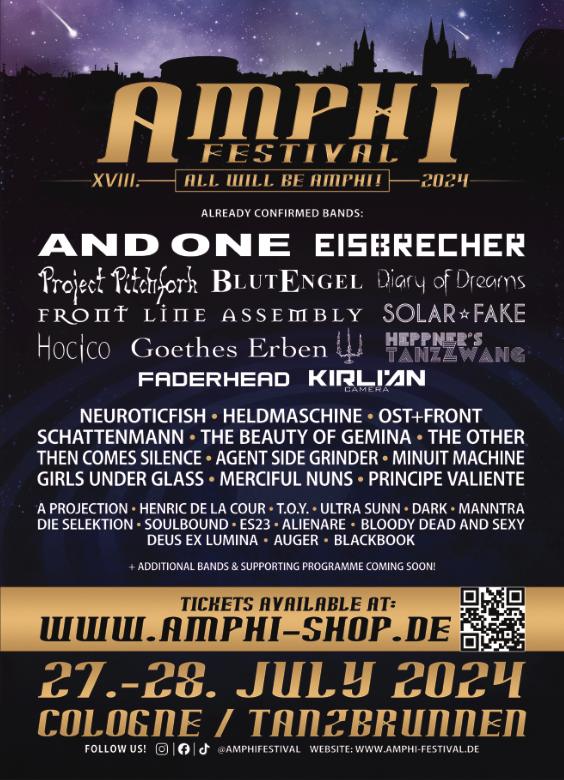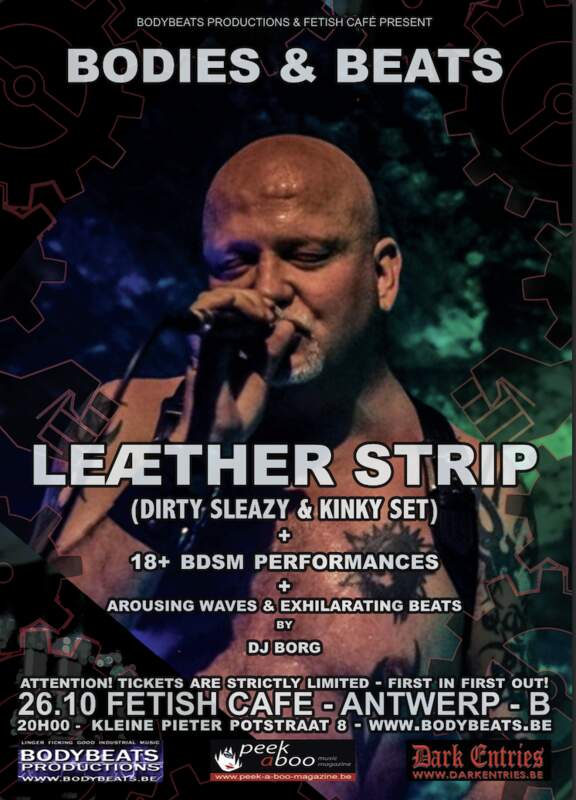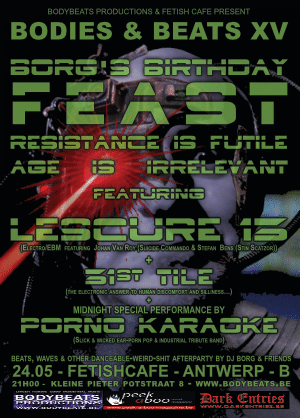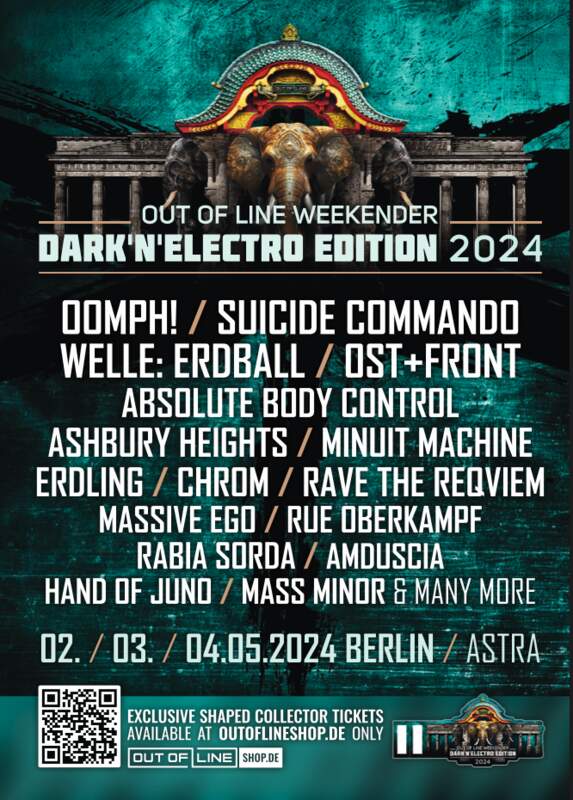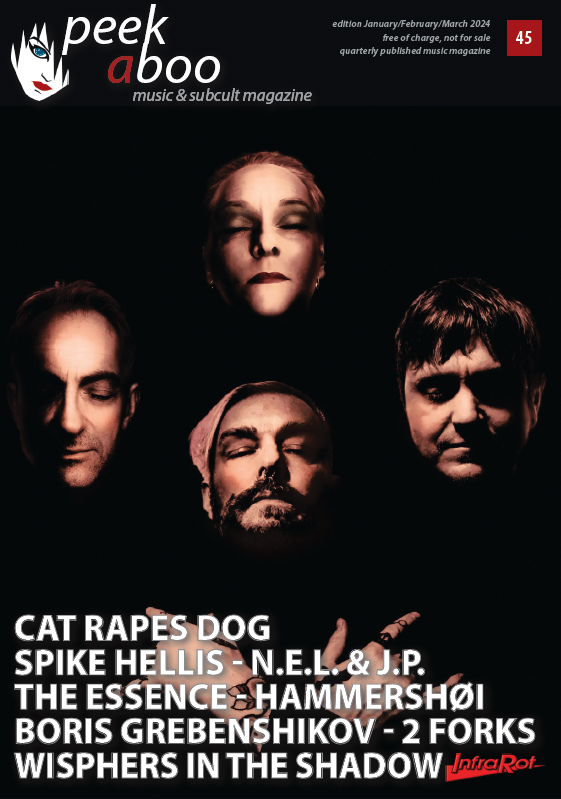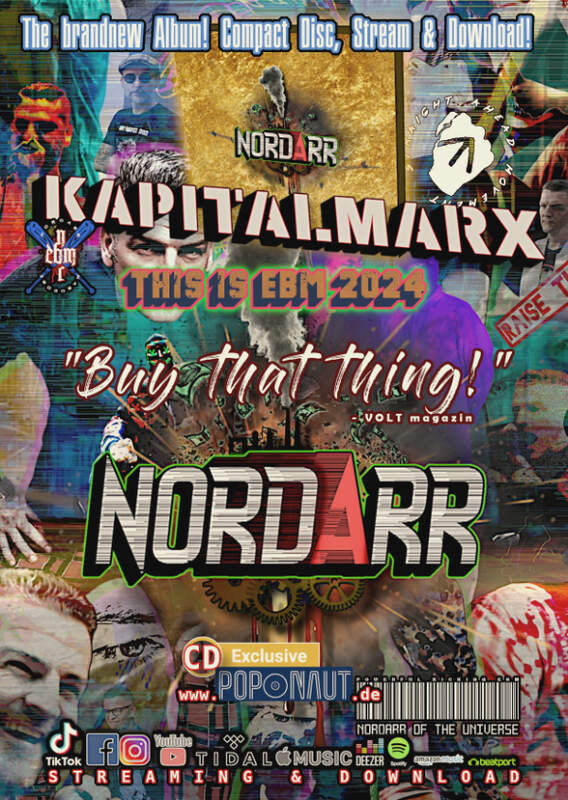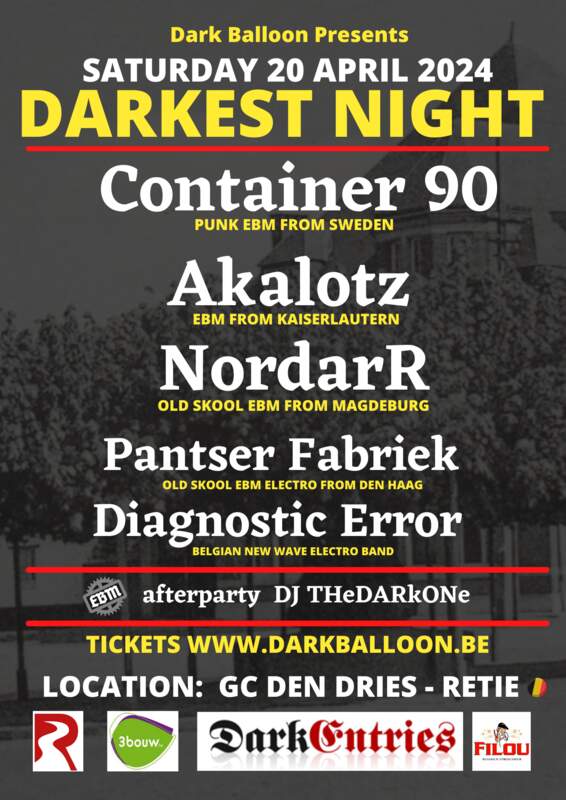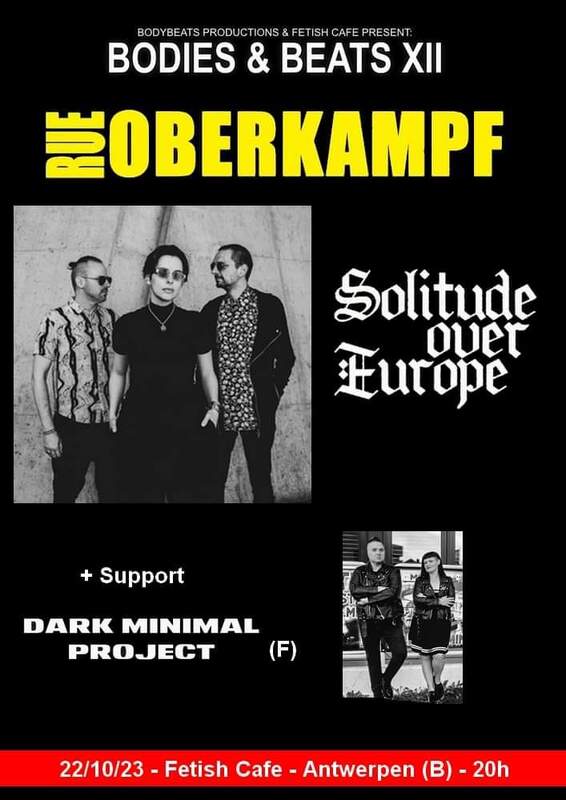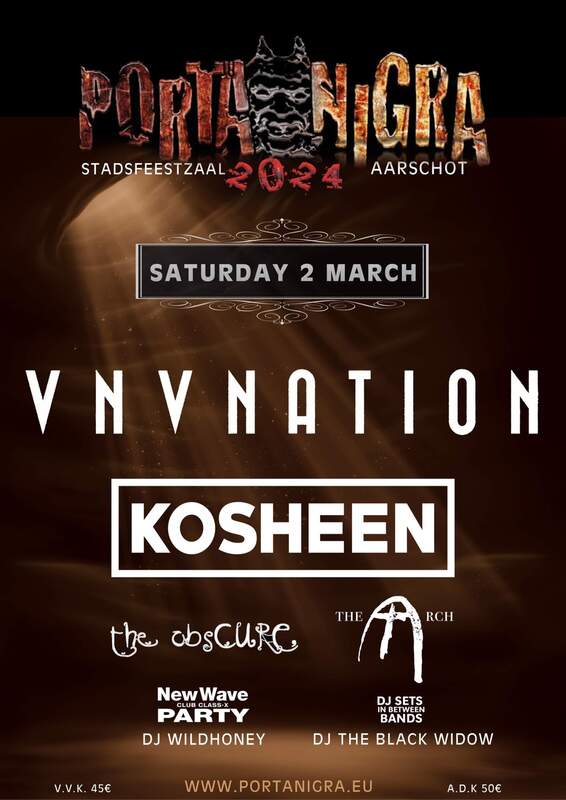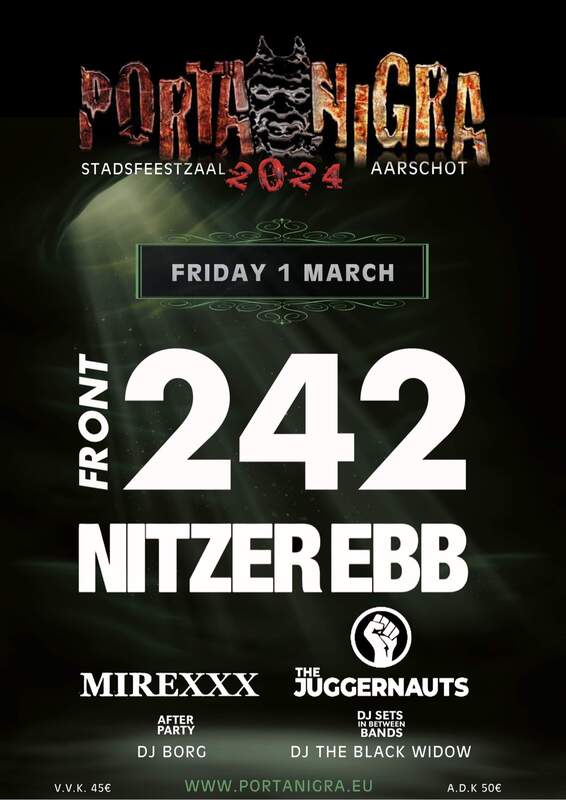PIETER VAN HEES (DIRECTOR)
Perhaps it is true that the further Wallony and Flanders grow from each other, the more exotic and exciting it becomes. That never hurts in a relationship.
25/11/2014, Didier BECU
Pieter describes Waste Land as a film noir. Because it is his project, he knows better than anyone else, but it is actually true. The Belgian filmmaker drags you into the dark areas of Brussels, where crime and hope meet each other. Anyway, no one can explain it better than Pieter himself!
Waste Land is a clever thriller, with a quite dark look at our Belgian capital city. I hope everything is based on your fantasy?
Well, it's primarily the image of the main character: Leo Woeste, a homicide cop from Brussels. When you are a cop you don’t enter the most cheerful side of Brussels. But I have also tried to show the vibrant side of Brussels in this film, the popular singer Lange Jojo or the sizzling nightlife of the African district of Matonge. I did that with a choice of songs through the film, from very urban to French songs, to songs of great talents from Congo and the Maghreb.
Brussels is a city of very great contrasts, where everything gets mixed: East European immigrants crossing French billionaires on the street. Any culture or religion has some supporters in our capital. This creates major challenges and a lot of pressure on the population, but it also provides tremendous opportunities. Leo Woeste is someone who is too rigid, one who has to deal with all those old-fashioned moral tensions, but he hopes that his newborn child will cope. That is my hope in this film.
As a result of the very large multiculturalism, Brussels is a kind of laboratory for the future, because the future will probably be like the situation in Brussels than in, say, Zwevezele (small town in Belgium, ed.). But I think it all will be fine. Provided that we explore it with all the communities and their values, and find a way to apply those values. I believe that as a small country,between superpowers, we have enough humility and perspective to do that. And it is that fantastic perspective that distinguishes Brussels from cities like Paris or London.
Due to its bilingualism and the fact that the film takes place in Brussels, Waste Land is neither Flemish nor Walloon. Belgium is your playground. Is that a conscious choice?
For me the film is Flemish and Walloon. So Belgian. And perhaps most of all Brussels. I have lived twenty years in Brussels. The city has crept into me and now crawls apparently in what I write.
But I wanted Waste Land to take place in a big city. Homicide becomes a completely different profession if you have 50 murders a year, then when you work in a small provincial town. The pressure is so much bigger in a metropolis. And Waste Land is primarily the story of a man who is put under much pressure from all sides (his profession, his wife who is unexpectedly pregnant, the confrontation with the Congolese culture that he experiences as strange...) ands slowly goes nuts.
And then it's a bonus that Brussels is also the capital of Europe. The film can also be interpreted as a snapshot of our European culture and how we, as aging Europeans, try to go on standing in front of all those young, emerging countries from other continents, who have the advantage of youth.
With Waste Land you work with the two of the nbest Belgian actors: Jérémie Renier (French speaking) and Peter Van de Begin (Dutch). How was it to work with these people? I mean, these two Belgian top actors have, apart from their profession, nothing in common, because of the character of Belgium.
One of the reasons why I am directing movies is because you can work with such great actors. That really is a joy. Especially on a day when Jérémie and Peter play together for the first time, because that gives immediate sparks. You feel that they get to know each other, that they try to be the best and discover that they can make each other better. That's really great when it happens before your eyes and then you, as a director, try to make it even better. That’s why you do it. It's like inviting some friends at a party and see how two people happen to be in love with each other that night.
The character of this country does not have to stand in the way. It happens more and more that Flemish and Walloon actors find each other. Just look at the chemistry between Laura Verlinden and Nabil Mallat in Image. In fact Marc Didden already did in Brussels By Night.
Perhaps it is true that the further Wallony and Flanders grow apart, the more exotic and exciting it becomes. That never hurts a relationship.
I read that normally you would like to make the movie with Matthias Schoenaerts. Respect for Matthias, but isn’t it a lucky coincidence that he was not available, I mean, the interpretation of Jérémie is phenomenal.
I have quite the same feeling. Jérémie has really done a fantastic job. He plays that role so fragile, so human. Of course I know the story as I have written it, and now directed it, but Jérémie moves me every time when I look at the film. How he plays with Natali Broodts. Such a beautiful couple!
Jérémie is a hugely experienced film actor, and that we don't have much of those in Belgium, someone who knows how to build such a character, who can carry a movie and have such a screen presence... that's really a gift to work with as a director.
And then there is of course Peter Van den Begin, the role of cop Johnny Rimbaud is made for him. Did you have him in mind?
I always have Peter in mind. He is one of my favorite actors and we already have worked together quite often. I'm glad you said earlier that he is one of the best Belgian actors, because he is. Because in his career he has played in some popular comedies, people don't always realize that. But he can switch easily from very funny to very dark, from dangerous to touching... and that within one role without losing his credibility.
I knew Peter would add that to the movie and he is a nice counterweight to the character of Jérémie. He is a perfect unhinged, coke-snorting cop, without falling into clichés. Delicious.
Without saying much about the story, there are many elements of voodoo in the film. Is that a subject you are interested in?
Not on a daily basis, though. 'Voodoo' is actually not the most precise term. The figurines in the film are Congolese Nkonde Nkisi. They are used in rituals to communicate with the souls of the ancestors, they are part of a larger, traditional nature of faith.
What interests me for this film is their spiritual quality. For many Africans the spiritual part has an important place in their life, whether it's more traditional, natural or religious, especially for the young generations who belong to modern Church religions, the Pentecostal Church, New Jerusalem...
Leo Woestre symbolizes the Westerner atheist who has lost his spiritual dimension and does not know exactly how to respond. Those statues frighten him, but that has more to do with how he looks at them then with the figurines themselves. He is like we are. Some people may be discomfortable now and then about African churches in Brussels where believers fall in trance. For us that is so strange that we can not handle it, while for many Africans it is a big support in their lives.
Waste Land belongs with your two previous films Dirty Mind and Linkeroever to the trilogy of Anatomy of Love and Pain. Can you explain that, because I see (at least I think so) three different films.
In my trilogy I wanted to explore love relationships, why love can be so overwhelming and sometimes so painful. Each of the three films is always told entirely of the perspective of the main character who has a crisis in his/her relationship. In Linkeroever it was about young people who experience the first great love of their life, Dirty Mind about people who are in their 20’s and already have a relationship, but fall in love with someone else, and in Waste Land people are over 30, they have been long together and they realize that their relationship might be over its peaklook. How do they deal with it, especially now that she appears to be pregnant?
In the three films the main character is always looking for his dark side hoping to live a more exciting life, hoping to become more attractive for his beloved ones, despite his fears.
The genre of the film depends on who is the main character. Linkeroever was a psychological horror film, Dirty Mind a black comedy and Waste Land is a film noir. Whereby the three films are likely to appear quite different, for me they form a strong thematic whole.
We like to hear it nowadays, maybe even too much, but is there an interest from abroad for Waste Land?
It was fantastic for us to have a world premiere at the prestigious Filmfestival of Toronto, so I immediately got a lot of offers from American agents. The festivals in Busan (Korea), Austin (USA) and Stockholm were quite an experience, but at the same time a little weird because you speak with journalists and the public about a film that still has not been released. But next week that will be different.
For a filmmaker and for all those who worked so hard on this film it is rewarding to see that a very local story about people in Brussels can move people worldwide. When a Korean comes to me after the screening with tears in his eyes telling me how much he feels like Leo Woeste, that does something with me.
It is also very nice that the talent of the cast and crew is noted abroad. I get loads of compliments on the work of Jérémie, Natali Broodts, Peter Van den Begin, Babetida Sadjo, to name a just a few, and on the camera work of Menno Mans and the music of Simon Lenski. The film can also be a showcase for their talent and that makes me very happy. Because my name is on the end titles, but it is also their film. Their talent makes the film strong.
It has been said with respect, Peter, but I didn’t have the feeling that I was watching a Flemish film, more a wonderful policier from the 70 with Alain Delon. Can you find yourself in such a comparison?
Certainly. If you look closely, you actually see a lot of places in Brussels that still look like a 70s policier. Those 70s movies in France and certainly in the US had an incredible intensity. You felt that there is a lot going on. A whole community was seeking for a new equilibrium after the wild 60’s and even if that was not the story of those films, you felt the intensity of the moment. In Waste Land we deliberately sought that kind of intensity. Without it, we would fall into retro.
I have seen on the net that you made some short films. Sometimes people think sometimes that these are just exercises for a feature film, for you it means more apparently, no?
I've always wanted to make films. Whether they take 10 minutes or 90 minutes. Short films are simply short long films. Or feature films are long short films...
May I end this interview with the question I always ask? What is your favorite movie of all time and why?
I doubt between Raging Bull, The Deer Hunter, Apocalypse Now and Brazil. Today it is The Deer Hunter. But what will it be tomorrow?
Didier BECU
25/11/2014
Pieter omschrijft Waste Land als een film noir. Omdat het zijn eigen kind is, kan hij het natuurlijk ook als geen ander weten, toch is het de nagel op de kop. De cineast sleurt je mee in de donkere wijken van Brussel, waar misdaad en hoop elkaar treffen. Maar goed, niemand die het beter kan uitleggen dan Pieter zelf!
Dag Pieter. Waste Land is een knappe politiefilm, maar tegelijkertijd wel een zeer zwarte kijk op onze Belgische hoofdstad. Ik hoop maar dat alles is gebaseerd op jouw fantasie, of niet?
Wel, het is in de eerste plaats de kijk van het hoofdpersonage, hoofdinspecteur Leo Woeste, op Brussel. Als flik Moordzaken kom je nu eenmaal niet direct in contact met de meest vrolijke kant van Brussel. Maar ik heb geprobeerd om in deze film ook de bruisende kant van Brussel te tonen, het volkse Brussel van Lange Jojo of het zinderende nachtleven van de Afrikaanse wijk Matonge. Bijv. door songkeuzes doorheen de film, van heel urban, tot Franse chansons tot songs van grote talenten uit Congo en de Maghreb.
Brussel is een stad van heel grote contrasten waarin alles door elkaar loopt. Straatarme Oost-Europese inwijkelingen kruisen Franse miljardairs op de straat. Gelijk welke cultuur of religie heeft ergens wel een paar aanhangers in onze hoofdstad. Dat zorgt voor grote uitdagingen en heel veel druk op de inwoners, maar biedt tegelijk enorme mogelijkheden. Leo Woeste is iemand die te rigide is, een te ouderwetse moraal heeft om met al die spanningen om te kunnen gaan, maar hij hoopt dat zijn pasgeboren kind dat misschien wel zal kunnen. Dat is voor mij de hoop in deze film.
Brussel is door zijn zeer grote multiculturaliteit een soort lab voor de toekomst, want de toekomst zal waarschijnlijk toch meer op Brussel lijken dan op pakweg Zwevezele. Maar ik zie het allemaal wel goed komen. Op voorwaarde dat we er met alle gemeenschappen samen in slagen te ontdekken welke waarden voor ons echt van belang zijn, een manier vinden om die waarden te laten gelden en een soepelheid om om te kunnen met wat voor andere gemeenschappen van essentiëel belang is. Ik geloof dat we als klein land dat geprangd zit tussen grootmachte, genoeg bescheidenheid en relativeringsvermogen hebben om dat aan te kunnen. Want het is dat fantastische relativeringsvermogen dat Brussel onderscheidt van steden als Parijs of Londen.
Door zijn tweetaligheid en het feit dat de film zich afspeelt in Brussel is Waste Land noch Vlaams noch Waals waardoor België meteen jouw speelterrein wordt. Is dat een bewuste keuze, of is het allemaal toevallig?
Voor mij is de film én Vlaams én Waals. Dus Belgisch. En misschien nog het meest Brussels. Ik woon nu twintig jaar in Brussel. De stad is in mij gekropen en kruipt nu dus blijkbaar in wat ik schrijf.
Maar ik wilde dat Waste Land zich ook bewust in een grootstad afspeelt. Moordzaken wordt een heel ander beroep als je 50 moorden per jaar hebt, dan wanneer je in een kleine provinciestad werkt. De druk is zoveel groter in de grootstad. En Waste Land is in de eerste plaats het verhaal van een man die langs alle kanten onder zoveel druk komt te staan (zijn beroep, zijn vrouw die onverwacht zwanger is, de confrontatie met de Congolese cultuur die hij als bevreemdend ervaart…) dat hij langzaam de grond onder zijn voeten verliest.
En dan is het helemaal mooi meegenomen dat Brussel ook de hoofdstad van Europa is. Zo kan de film ook op een dieper niveau geïnterpreteerd worden als een momentopname van onze Europese cultuur en hoe we ons als vergrijzende Europeanen proberen staande houden tegenover al die jonge, opkomende nieuwe landen uit andere continenten die wel het voordeel van de jeugd hebben.
Met Waste Land heb jij wel meteen de twee beste Belgische acteurs beet: Jérémie Renier als Franstalige en Peter Van De Begin als Nederlandstalige. Hoe was het om met deze mensen samen te werken? Ik bedoel het zijn twee Belgische topacteurs, maar door de karakter van dit land hebben ze op hun beroep na niks met elkaar gemeen.
Eén van de redenen waarom ik films regisseer is omdat je zo met fantastische acteurs kunt werken. Dat is echt genieten. Zeker op zo’n dag als op de set Jérémie en Peter voor het eerst samenspelen en dat onmiddellijk vonken geeft. Omdat je voelt dat ze elkaar daar ter plekke leren kennen. Dat ze niet willen onderdoen voor elkaar en ontdekken dat ze elkaar beter kunnen maken. Het is echt fantastisch om dat voor je ogen te zien gebeuren en om dan te proberen om dat te sturen als regisseur zodat het nog beter wordt. Daarvoor doe je het. Het is zoals wat vrienden uitnodigen op een feestje en dan zien hoe twee mensen die avond op elkaar verliefd worden.
Het karakter van dit land hoeft dat niet in de weg te staan. Het gebeurt steeds meer dat Vlaamse en Waalse acteurs elkaar vinden. Kijk maar naar de chemie tussen Laura Verlinden en Nabil Mallat in Image. Marc Didden liet het trouwens vroeger ook al gebeuren in Brussels By Night.
Misschien is het wel zo dat hoe verder Wallonië enVlaanderen uitelkaar groeien, hoe exotischer en dus spannender we weer worden voor elkaar. Kan nooit kwaad in een relatie.
Ik las dat het normaliter de bedoeling was dat je de film met Matthias Schoenaerts zou draaien. Is dat achteraf bekeken geen meevaller, ik bedoel respect voor Matthias, maar de vertolking van Jérémie is wel fenomenaal.
Ik heb helemaal hetzelfde gevoel. Jérémie heeft dat echt fantastisch gedaan. Hij speelt die rol zo kwetsbaar, zo menselijk. Ik ken het verhaal uiteraard van binnen en van buiten want ik heb het geschreven en geregisseerd, maar Jérémie ontroert me telkens weer als ik naar de film kijk. Ook hoe hij met Natali Broodts samenspeelt. Zo’n mooi koppel!
Jérémie is daarenboven ook een enorm ervaren filmacteur en die hebben we niet zoveel in België. Iemand die weet hoe je zo’n personage opbouwt, hoe je een film echt kunt dragen en dan nog zo’n screenpresence… dat is echt een cadeau om mee te werken als regisseur.
En dan is er natuurlijk Peter Van den Begin, de rol van flik Johnny Rimbaud is op zijn lijf geschreven. Had je hem in gedachten?
Ik heb Peter altijd in gedachten. Hij is één van mijn favoriete acteurs en we hebben dan ook al dikwijls samengewerkt. Ik ben blij dat je eerder zei dat hij één van de beste Belgische acteurs is, want dat is hij ook echt. Omdat hij in zijn carrière ook in meer volkse komedies heeft gespeeld, beseffen mensen dat niet altijd. Maar hij kan zo gemakkelijk switchen van heel grappig naar heel donker en gevaarlijk naar ontroerend… En dat binnen één rol, zonder zijn geloofwaardigheid te verliezen, dat doen weinigen hem na.
Ik had dat ook heel hard nodig in Waste Land, zo’n personage. Ik wist dat Peter heel veel humor en drive zou toevoegen aan de film en een mooi tegengewicht zou bieden tegenover het personage van Jérémie. Dat hij perfect de losgeslagen, cokesnuivende, losbandige flik kon neerzetten zonder te vervallen in de clichés. Heerlijk.
Zonder veel over het verhaal te vertellen zijn er ook veel elementen over voodoo in de film verwerkt. Is dat een onderwerp waarmee jij bezig bent?
Niet op dagelijkse basis, hoor. ‘Voodoo’ is eigenlijk ook niet de meest precieze term. De beeldjes die in de film voorkomen zijn Congolese Nkondé Nkisi-beeldjes. Ze worden gebruikt in rituelen om in contact te treden met de zielen van de voorvaderen, ze maken deel uit van een ruimer, traditioneel natuurgeloof.
Wat mij daaraan interesseerde voor deze film is hun spirituele kwaliteit. Voor vele Afrikanen neemt dat spirituele een belangrijke plaats in in hun leven, of het nu over meer traditionele natuurreligies gaat of, wat voor de huidige generaties meer en meer geldt, de moderne Kerkelijke religies als de Pinkstergemeenschap, New Jeruzalem… Leo Woeste staat in de film symbool voor de atheistische westerling die die spirituele dimensie voor een groot stuk is kwijt gespeeld en niet meer weet hoe hij daar precies op moet reageren. Daarom maken die beeldjes hem bang, maar dat heeft meer te maken met hoe hij er naar kijkt, dan met die beeldjes zelf. Net zoals wij op ons ongemak voelen bij die vele kleine pop-up Afrikaanse kerken in Brussel waar de gelovigen helemaal in trance geraken. Dat is voor ons zo bevreemdend wat wij er niet goed mee om kunnen, terwijl het voor vele Afrikanen juist heel veel steun biedt in hun leven.
Waste Land behoort samen met je twee vorige films Linkeroever en Dirty Mind tot de trilogie van de Anatomie van de Liefde en de Pijn. Kun je dat uitleggen, want het gaat (ten minste dat vind ik toch) om drie verschillende films.
In mijn trilogie wilde ik liefdes-relaties onderzoeken, waarom liefde soms zo overweldigend kan zijn en dan weer zo pijnlijk. Elk van de drie films wordt telkens helemaal verteld vanuit het standpunt van het hoofdpersonage dat telkens een crisis in zijn/haar relatie beleeft. In Linkeroever ging het over jonge mensen die de eerste grote liefde van hun leven beleven, in Dirty Mind over laat-twintigers die al een relatie hebben maar dan verliefd worden op iemand anders, en in Waste Land gaat over dertigers die al lang samen zijn, samen voor een kind zorgen, beseffen dat het hoogtepunt van hun relatie misschien al een tijdje achter de rug is en zoeken hoe ze daarmee om moeten gaan, zeker nu zij zwanger blijkt te zijn.
In de drie films gaat het hoofdpersonage ook steeds op zoek naar zijn donkere kant in de hoop zo een spannender leven te leiden, in de hoop zo aantrekkelijker te zijn voor zijn geliefde, met alle angsten die die zoektocht naar de meer donkere ik met zich meebrengen.
Het genre van de film heb ik steeds laten afhangen van wie het hoofdpersonage is. Linkeroever is zo een psychologische horrorfilm geworden, Dirty Mind een zwarte komedie en Waste Land een film noir. Waardoor de drie films waarschijnlijk nogal verschillend overkomen. Maar voor mij vormen ze thematisch een sterk geheel.
We horen het tegenwoordig graag, misschien zelfs te graag, maar is er interesse uit het buitenland voor Waste Land?
Het was voor ons fantastisch om een wereldpremière te hebben op het zeer prestigieuze festival van Toronto, waardoor ik ook meteen heel wat aanbiedingen kreeg van Amerikaanse agents. Ook de festivals in Busan (Korea), Austin (USA) en Stockholm waren een hele ervaring, maar tegelijk ook een beetje raar dat je verspreid over de hele wereld met journalisten en publiek over je film spreekt en de film hier nog uit moet komen. Maar dat wordt dan volgende week rechtgezet.
Het is voor een filmmaker en voor iedereen die zo hard aan deze film gewerkt heeft wel heel fijn om te merken dat een erg lokaal Brussels verhaal mensen over de hele wereld kan ontroeren. Als een Koreaan na de screening met tranen in zijn ogen komt vertellen hoezeer hij zich Leo Woeste voelt, dan doet dat toch wel iets met je.
En ook heel fijn dat in het buitenland het talent van de cast en de crew wordt opgemerkt. Ik krijg ontzettend veel complimenten over zowel het spel van Jérémie, Natali Broodts, Peter Van den Begin, Babetida Sadjo, om er een maar een paar te noemen, als over het camerawerk van Menno Mans of de muziek van Simon Lenski. Dat de film ook voor hen kan dienen als een showcase van hun talent, maakt mij erg gelukkig. Want mijn naam staat misschien wel onder de film, maar het is evengoed hun film. Hun talent maakt de film zo sterk.
Het is met respect gezegd, Pieter, maar ik had geen enkel moment (op de acteurs na) het gevoel dat ik naar een Vlaamse film zat te kijken, eerder zo’n heerlijke policier uit de jaren 70 met Alain Delon. Kan je je vinden in zo’n vergelijking?
Zeker. Als je goed kijkt, zien veel plekken in Brussel er trouwens nog steeds uit zoals in een jaren 70 –policier. Die jaren 70-films uit Frankrijk en zeker ook uit de VS hadden een ongelooflijke intensiteit. Je voelde dat er vanalles broeide in die jaren, dat een hele gemeenschap nog op zoek was naar een nieuw evenwicht na de wilde jaren 60 en zelfs als die films daar niet over gingen, voelde je dat die intensiteit er toch insloop. Bij Waste Land hebben we bewust gestreefd naar dat soort intensiteit. Zonder dat we in retro wilden vervallen.
Ik heb op het net gezien dat jij heel wat kortfilms hebt gemaakt. Soms denken mensen wel eens dat dit louter vingeroefeningen zijn voor een langspeelfilm, maar voor jou betekent het blijkbaar meer, niet?
Ik heb altijd films willen maken. Of ze nu 10 minuten duren of 90 minuten. Kortfilms zijn gewoon korte langspeelfilms. Of langspeelfilms zijn lang uitgevallen kortfilms…
Mag ik afsluiten met de vraag die ik iedereen stel? Wat is jouw favoriete film aller tijden en waarom?
Ik twijfel tussen Raging Bull, The Deer Hunter, Apocalypse Now en Brazil. Vandaag is het Deer Hunter. Maar wat het morgen zal zijn?
Didier BECU
25/11/2014
Next interviews
SEX GANG CHILDREN • Your analogy of squatting as 'living in the gutter' is way off the mark.
2ND CIVILIZATION • I feel with this album something is starting to move and if promoters are willing to book a good live band, they know where to find us.
RASTABAN • We create, record and produce our records ourselves, and we want to keep this freedom!
JONAS GOVAERTS (DIRECTOR) • The question is not, 'What can't you do?', it is 'What hasn't been done yet?', and also, 'Why isn't Emma Stone answering my calls?'
JOHN CARPENTER • I’m encouraged for the future.
VANNESSA VASQUEZ (ACTRESS) • I am a very free spirit, I don’t know what lies ahead but I trust that they universe has great things in store.
SAIGON BLUE RAIN • Gothic with hints of color and light in a global dark universe
DALE LLOYD (A VIDEOTAPE COLLECTOR IN 2014) • I will happily watch the latest releases on DVD and Blu-ray, but why spend heavily on older films that I already own on VHS?
AHARON KESHALES (DIRECTOR) • We don't want to educate people, we want them to test their own set of believes while they watch our films.
CATHERINE MARY STEWART (ACTRESS) • I’ve always been a kind of “tom boy”.


